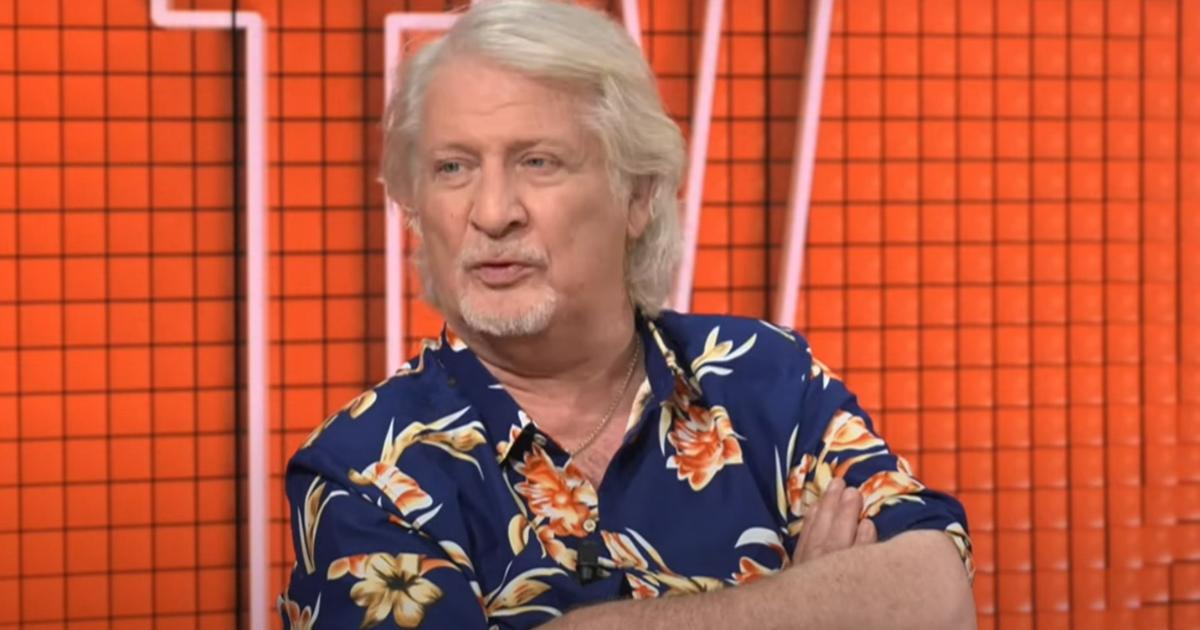Patrick Hetzel is a deputy for Bas-Rhin, vice-president of the Les Républicains group in the National Assembly.
The pension reform bill has shown that in politics the method is just as important as the substance.
The open debate on the end of life confirms this.
The citizens' convention on the end of life put in place was intended to raise the awareness of citizens who are representative of public opinion on a difficult subject and to identify avenues for reflection.
To pilot this operation, in conjunction with consulting firms, the executive chose the Economic and Social Council (CESE), which in 2018 advocated the legalization of euthanasia and assisted suicide.
Oscillating between amateurism and manipulation, this procedure quickly lost its credibility.
From the outset, the question posed was a textbook case of intellectual dishonesty, for an exercise that claimed to be a model of participatory democracy: "
Is the end-of-life support framework adapted to the different situations encountered or
?"
A very totalitarian vision of the legal norm, as if a law by general definition was intended to embrace all the singular situations of the end of life.
Read also“End of life: palliative emergency”
If the investment and attendance of the participants deserve to be saluted, the procession of proof of their manipulation is long: opacity on the criteria for choosing speakers, exclusion of works hostile to the legalization of euthanasia in the bibliography available to conventional members, interventions by promoters of the Belgian and Swiss systems from the start of the procedure, absence of adversarial debate with the promoters of foreign legislation legalizing euthanasia (Belgium, Quebec, Switzerland), systematic use of the term "d 'active assistance in dying' during the debates, discussion limited to an hour and a half over 27 days of deliberative phase between proponents and opponents of euthanasia, exclusion of philosophers and ethicists reserved on the legalization of euthanasia,limitation of the voice of doctors to a single morning, refusal to organize visits to palliative care units in the field.
With a hindsight of 20 years of application, the Belgian and Dutch legislation that legalized euthanasia is characterized by opacity and medical irresponsibility.
Patrick Hetzel
Serious doubts about the methodology and the procedure also led some of the members of the Convention to seize the president of the ESEC: closed formulation of questions, very short time allotted for answering questions (fifteen seconds at the eighth session), malfunctioning of votes on essential questions, organization of votes on tendencies in the presence of the press without a quorum, even before the participants have decided on the framework for euthanasia and assisted suicide.
When deciding on the field of assisted suicide, the members of the Convention had no other alternative but to vote for assisted suicide for adults, adults and minors or to abstain, without the hypothesis of a vote against is considered.
We are far from the ethical requirements of
an objective debate creating the conditions for mature and deliberative polling, which this convention should have been.
How can we not also mention the participation of the organizer of this convention in a debate led by the honorary president of the Association for the right to die with dignity in the premises of the town hall of Paris.
If by chance, the parliament were to be seized of a bill, it could not avoid three essential themes overshadowed by the citizens' convention: a serious evaluation of the legislation having legalized euthanasia and assisted suicide;
the use of terms corresponding to the reality of these practices and the compatibility of these laws with palliative care.
Read alsoMichel Houellebecq: “Euthanasia, welcome to the inhuman world of Green Sun!”
With a hindsight of 20 years of application, the Belgian and Dutch legislation that legalized euthanasia is characterized by opacity and medical irresponsibility.
One cannot qualify procedures as transparent, when 30 to 50% of the euthanasias performed are not declared, as is now documented by studies by Belgian doctors.
It cannot be maintained that these procedures are supervised, when, as the Belgian a posteriori
control commission itself admits
, "
the Commission does not have the possibility of evaluating the proportion of the number of euthanasias declared in relation to the number of euthanasia actually practiced
".
For their part, the Dutch display in their statistics the existence of lethal injections in patients unable to express their will alongside legal euthanasia, which lends credence to the idea of illegal euthanasia practices.
In these two countries, the offenders do not risk anything, since the control functions in practice as a medical self-control, no doctor having been penalized.
The law is called “medical assistance in dying” but the statistics show 10,000 annual euthanasias for 7 assisted suicides.
You have to have the courage to call things by their name.
Patrick Hetzel
In constant case law, the Constitutional Council requires the legislator to adopt sufficiently precise provisions and unequivocal formulas.
However, by a semantic manipulation, the promoters of euthanasia take shelter behind the compassionate expression of "medical aid in dying", in order not to use the term euthanasia, which refers to eugenic theories and Aktion T4 of Nazism.
The Canadian case is telling in this regard.
The law is called “medical assistance in dying” but the statistics show 10,000 annual euthanasias for 7 assisted suicides.
You have to have the courage to call things by their name.
Finally, it will be necessary to dissipate an ambiguity skillfully maintained by the promoters of euthanasia and assisted suicide.
These two forms of administered death are in fact not compatible with palliative care.
The latter obey a logic of solidarity, whereas euthanasia and assisted suicide are a response to a demand for individual autonomy.
Euthanasia stops support, interrupts palliative care, does not relieve the patient but does away with it, as Jacques Ricot recalled before the mission of the National Assembly's Social Affairs Committee on March 6, 2023. Palliative care are considered by Belgian and Canadian law as a second-rate alternative to euthanasia and assisted suicide.
Finally, the international rankings of Belgium and Canada show the gradual decline in investment in end-of-life care and therefore in palliative care in these countries.
It is for this reason that there is some hypocrisy on the part of the National Consultative Ethics Committee to plead in its opinion 139, in the name of the equality of citizens before the law, the need to resort to euthanasia for patients unable to self-administer assisted suicide.
The duty of the State is first to guarantee equal access for all to palliative care, as required by article L 1110-9 of the public health code.
However, this equality before the law is far from guaranteed.
The state withdrew between 2018 and 2021 and does not
has planned to pay between 2021 and 2024 only 171 million euros, a derisory amount in view of the needs identified by the agreement.
The Austrian example also deserves to be pondered.
When assisted suicide was legalized in this country in 2021, the government promised a very substantial increase in palliative care credits.
Not the first euro has been paid to date.
In the light of these data, it is clear that the answers to these difficult questions could not be summed up in a quiz which had to be answered in fifteen seconds, without going into details and thinking about the writing of a text, as the organizers of the citizens' convention wanted to make believe.
Guiding a debate in binary terms could not reflect the complexity of these issues.
The societal, medical, legal and philosophical issues of the end of life and the participatory democracy to which our fellow citizens aspire deserved better than that.







/cloudfront-eu-central-1.images.arcpublishing.com/prisa/6Z4V7QPGXRDP3DLHHB6IHL23HM.jpg)






